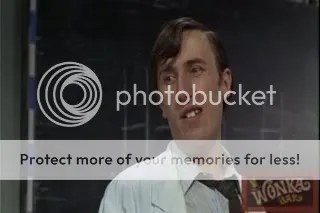Well, Prom season is upon us. You may wonder what the heck that has to do with marketing a novel. Well, I’ll tell you.
But first, I’d like to introduce this into evidence:

That’s me (with my sister) on my way to the prom circa 1992.
Now, if you’re like me, after looking at this picture, you’re rubbing your stinging nose with one hand while wiping the coffee off your laptop with the other. Which is hard to do when you’re shaking with laughter. I mean that is really quite the look, right? Check out the asymmetric hair-do and the “floating pearl” necklace. Not to mention the white iridescent tights. And when you’re uberpale, the best look is almost always baby pink patterned satin over white tulle, natch.
Here’s the thing:
At the time, I thought I looked awesome. Other people thought I looked awesome, too. I overheard my date’s younger sister whining that her brother must have bribed me or something cuz OMG, she’s actually pretty!
Unfortunately, I believe writing is a bit like fashion. I finished the first draft of The Edge of Memory in 7 weeks. I did a quick grammar edit, and then shipped the manuscript off to a bevy of test readers for feedback, while I took a month away “for perspective.” (yeah, right.)
Over the next several months, I completed several major edits. I then decided I was done tinkering and ready to seek representation. I read the blogging agents mantras of “Don’t Query Before You’re Ready” and “Write a Great Book” and felt confident. I loved my manuscript. I didn’t think it was perfect, of course, but I thought I’d reached the point where I needed professional feedback to progress further.
I was both right and wrong.
Since that first stopping point (when my book was titled “Still Haunted”), I’ve done at least six more rounds of editing. And each time I finish a round of edits, I cringe to look at the previous drafts. Just like that prom picture, I look at those versions and wonder, “what the heck I was thinking?”
In February, an agent who had requested a partial and then my full manuscript pointed out a plot detail that bothered her. She gave me a eureka moment and I subsequently rewrote several scenes. I am very pleased with the resulting manuscript, and have not edited again since (which, of course, shatters my previous record of approximately nine minutes between edits). I think this time I finally have reached the most polished version I can produce.
Naturally, I wish I had known that I wasn’t as ready as I thought I was when I first began querying. But then, I’m not sure I would have reached this place without the submission process. Certainly, I might never have had the eureka moment without that agent’s input.
The take-home point here is that I’m glad I’ve never been a Query Player (much as I’ve tried). If I had queried a zillion agents when I first thought my manuscript was ready, I’d have burned all my bridges.
But since I’ve only queried a few agents at a time, I’ve got a chance to show my best work. And I’m grateful for that.
Filed under: musings, novel, What I've Learned | Tagged: agents, editing, family, geekiness, H. L. Dyer, Heather Dyer, hldyer, musings, pitching, publishing, queries, rewriting, Silly Stuff, The Edge of Memory, What I've Learned, writing | 2 Comments »






























